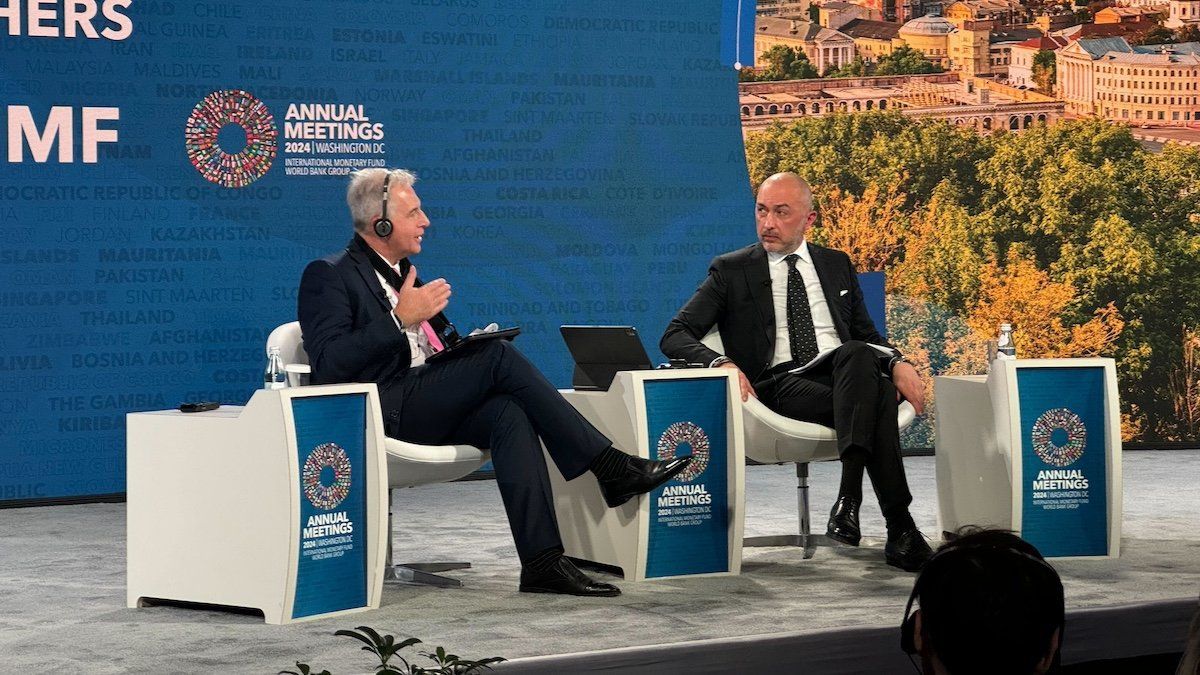The International Monetary Fund announced Wednesday that Ukraine had successfully completed the fifth revision of its financing program and will receive $1.1 billion to support its non-military budget. This is a major achievement for Kyiv and has required extensive reforms while at war. It’s a war that has not gone well in the last year to boot, and talk about reconstruction — and the IMF and World Bank’s roles therein — has diminished as a result.
Notably absent from this year’s IMF/World Bank Annual Meetings is a marquee discussion of funding for Ukraine’s reconstruction efforts. IMF Managing Director Kristalina Georgieva wrote that Ukraine’s “recovery is expected to slow amid headwinds from the impact of the attacks on energy infrastructure and the continuing war, while risks to the outlook remain exceptionally high.”
Ukraine’s central bank chief Andriy Pyshnyy emphasized the importance of contingency planning under such circumstances, and continuing reforms even if the military situation worsens. Ultimately, they will help Ukraine meet the standards necessary to join the EU — and Kyiv sees greater integration with the West as the best, if not only, way to achieve long-term security.
“Uncertainty is our new reality,” said Pyshnyy at a press event on Wednesday. He credited the IMF’s responsiveness and his own staff’s grit in helping the country overcome panic and anxiety when Russia invaded, and he has set in motion plans to increase the country’s financial resilience.
Maintaining public confidence in the banking system by making sure everyone can access their money when they need it is crucial to keeping the Ukrainian economy afloat. Ukraine’s banks are now capable of functioning in blackout conditions, which has prevented panic withdrawals. The violence has also left many Ukrainians disabled, which has led to changes Pyshnyy said he hopes will lead Ukraine’s “financial system to be the most accessible in the world.”
“We believe in our victory,” said Pyshnyy. “We believe that tomorrow can be better than today.”
